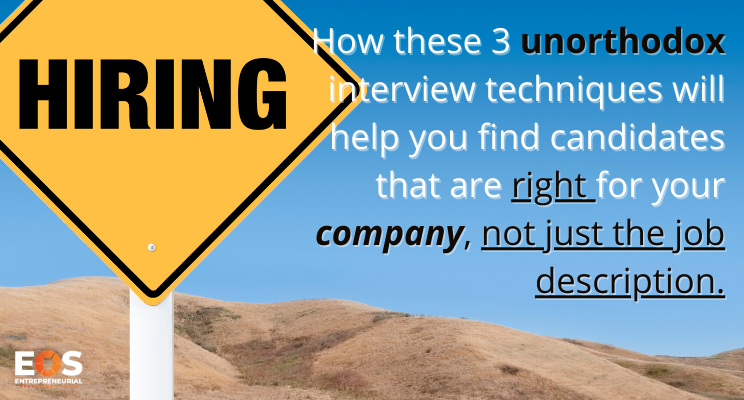The Old-Fashioned Way of Hiring
The results from my LinkedIn poll shocked me.
It was unbelievable. And not in the hyperbolic way we usually use the word.
I wanted to find out what was most important when hiring an employee. Overwhelmingly, respondents answered that the candidate should align with the company’s core values.
In fact, 73% of respondents answered this way.
I was pleasantly surprised as I believe that core value and culture fit is incredibly important for the health of an organization.
But there seemed to be a disconnect.
If 73% of people believe that a core value fit is the most critical aspect of hiring, why don’t most companies actually practice this – especially during the hiring process?
The more I thought about it, the more it made sense. Of course, companies are still prioritizing qualifications and skill set over core values and right fit…
That’s how it’s always been done!
Traditionally, the hiring process is about finding the right person for the position (i.e. skill sets) not for the company (core value fit).
Do a quick job search on any major job site and look at the descriptions. More often than not, you’ll find this template:
- A short description of the company and/or team and a summary of the role
- A bulleted list of the job responsibilities
- A bulleted list of the candidate’s required skills and/or qualifications
- A list of the package they may offer (compensation, benefits, etc), if you’re lucky
During the interview stage, candidates are asked about their experience with a certain program or how they’d handle a common situation. It’s all very short-sighted.
A New Approach
Long-term success is about building a team that shares the same values and is working towards a shared vision. Do traditional interviews achieve this? Are they even meant to?
I was tired of reading about how “you must hire based on the person, not the resume” and “you need to create a great company culture,” while 99% of companies continued to interview in the same, old, outdated way.
There are amazing companies out there who are ahead of the game and using outside-the-box interviewing techniques to bring in the right people.
One example is Compass, a real estate firm whose CEO, Robert Reffkin, uses an innovative approach to the interview.
He explains that ‘At Compass, our culture is entrepreneurial, so whenever I’m hiring or doing interviews, I evaluate people on how well they dream big, move fast, learn from reality, are solutions-driven, obsess about opportunity, collaborate without ego, maximize their strengths, and bounce back with passion.”
He clearly knows his company’s core values. Once you define your core values, adjusting the interview style to understand a candidate’s core-value fit isn’t difficult.
EOS is one of the loudest advocates of this concept. This is why I reached out to some of the best EOS companies and Implementers I know to brainstorm ideas for a better way to interview.
Idea #1 – Get into the weeds
The first idea is probably the closest to the interview process we’ve grown accustomed to.
Use the same questions you would ask in a traditional interview. But don’t stop there. Get deeper into the weeds.
Instead of asking “Have you ever had a situation in which you dealt with X?” and stopping there, follow it up.
“How did you feel about the problem AND the solution? What was your biggest concern when dealing with the issue? Aside from the technical steps you were taking, what were you struggling with when solving the problem?”
By understanding someone’s feelings, intentions, and motives, you will better understand their values.
If they answer “I was worried that I wouldn’t hit my quota,” you’ll understand they are motivated by money.
If they answer “I was worried that the customer would be unhappy,” you’ll understand they are motivated by the company’s best interests.
Idea #2 – The sheet of paper test
Assume the company’s core values are clearly defined and documented (EOS narrows down the 5 most important core values).
Now, let’s put that document to use.
Hand the candidate the list of your five core values and ask them to read it and think about it – then walk away.
Let them reflect upon your core values. After ten minutes, return and discuss.
Ask them questions about the core values and their feelings on them. Do any resonate? Do any stand-out? Which ones stand out and why?
Most likely, someone won’t say “I don’t share this value.” Instead, they’ll probably say “I like them,” or “I agree” without much more feedback.
Those who truly align with the company’s values will become excited and share anecdotes. They’ll light up.
Idea #3 – The core value round
The third idea may be the most radical – which is why I saved it for last.
The idea is an entire interview round dedicated to core-value fit.
And to make this sound even more outlandish…
It’s the first round.
Ask behavioral questions with the pure intent of uncovering core values. Ask every candidate the same set of questions. Do not skip and do not deviate.
Once 100% certain that a candidate aligns with the company’s values and culture, move them to round two for the job function and qualifications fit.
This will not only bring in the right people for the company and its long-term vision but also establish company culture as a top priority.
It won’t go unnoticed or unappreciated by your team – or the right candidates.
Think about it like this – Would you rather work for a company that wants you? Or a company that wants somebody (anybody) with your experience?
I hope this has given you ideas to implement into your own interview process. At the very least, I hope it reinforces the importance of aligning your company’s values with your team.
If you need help clearly defining your core values or your interview process, send me a DM.



